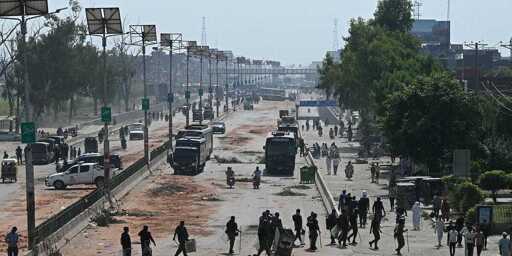Waqas Ahmed, Ryan Grim, and Murtaza Hussain
Oct 16, 2025
On Breaking Points yesterday, we covered the grisly massacre that unfolded this week in Pakistan, as state security services gunned down an unknown but considerable number of people marching to protest against looming normalization with Israel. The segment was controversial, with critics arguing that the group in question, the TLP, is not genuinely “pro-Palestine” but is a far-right, religious extremist organization that regularly incites and carries out violence. But we noted all that in the report.
Pakistan does not actually have a history of this sort of mass state violence, and so the military-backed government needs to normalize it if it is to become part of their weaponry in building and defending what Field Marshall Asim Munir describes privately as his end goal, “a hard state.” Authoritarian governments often target groups with the least public support first, hoping to establish a principle for how other dissent will be dealt with. In this report we document how the Pakistani military appears to be using the same tactic with the justly unpopular TLP to set the tone for how other groups may expect to be treated if they do not toe the line on their emerging Israel-Gaza policy.



RIght, so you can hang someone for blasphemy, but can’t vouch for the Falastinis, in Pakistan?